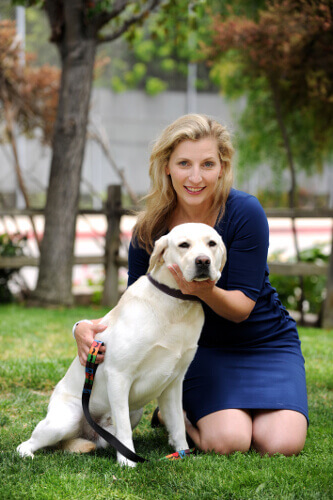
Veterinarian, Reproduction Specialist
How I became a veterinarian:
I think it had something to do with my dad saying "that girl's going to be a vet", every time he saw me light up in the presence of a dog, cat, calf, lamb, piglet, tank of fish, etc.
Seriously though, it was probably a combination of influences from both my parents. My father had come from a large farm in western Canada. My mom was a pharmacist in Eastern Canada. The combination of both worlds led to a harmonious blend of science and nature.
By the time, I had made it to college, I had loved two dogs and met others who shared my love of animals and medicine. One of my college professors, told me that there would be a moment that I would be listening to a lecture and it would change the way I would think. The very next day, I started developmental biology and my world changed forever. I not only knew I would become a veterinarian, but I would dedicate my career to the understanding of how we all get from a single cell to the complex beings that we are today. This is what has driven me to become a board certified theriogenologist (DACT) after I graduated from the University of Guelph with my veterinary degree.
I love every day of my job. It satisfies the inquisitive scientist in me, but it also nurtures the animal lover. Who could have a better job than myself after planning a breeding, getting to see life begin on a pregnancy exam, deliver a litter of puppies and watch them grow up to fill their new owners lives with so much joy.
Dr. Sebzda has been with Newport Harbor Animal Hospital since 2000 and is a member of AVMA, AAHA and the American College of Theriogenologists. She is a Clinical Preceptor for veterinary students for Western University of Health Sciences and a proud to support the Theriogenology Foundation and the Working Dog Project.
Dr. Sebzda is certified in Respiratory Function Grading (RFGS) for Respiratory Function Grading specifically for Pugs, French Bulldogs and English Bulldogs. The OFA website lists all the requirements for this testing and certification. Call us to set up a consultation.
Dr. Sebzda has also published "Performing Vaginal Cytology in Dogs" on Clinician's Brief and co-authored a paper titled "Update on Brucella canis. Understanding the past and preparing for the future” which showcases her ongoing contributions to veterinary medicine.

